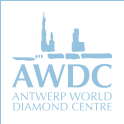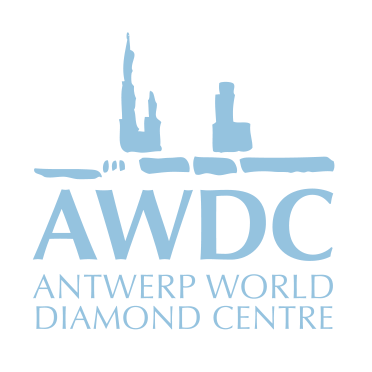- Home
- What can we do for you
- Starting a Business in Antwerp
- 2. Founding a Company in Belgium
- Company start-up procedure
- G7/EU Sanctions
- Registered Diamond Companies
- Banking and Taxes
- Antwerp Diamond Tender Facility
- Diamond Office
- Resources and Regulations
- Sponsorship Request
- Brilliant Benefits
- AD Jobs
- Doing Business in Antwerp: Contact List
- Starting a Business in Antwerp
- 1. Formalities, Registrations and Declarations for Diamond Traders
- 2. Founding a Company in Belgium
- 3. Types of Companies in Belgium
- 4. Methods to Acquire Companies in Belgium
- 5. Commercial Property
- 6. Insurance
- 7. Labour in Belgium
- 8. International Agreements
- 9. Subsidies in Belgium
- 10. Intellectual Property
Company start-up procedure
Conducting business as a sole trader or as a company
Once a foreign trader has obtained a professional card and completed all the necessary formalities in order to be self-employed, he has the option to act as a sole trader or to start up a company in Belgium.
If a diamond trader wishes to act as a sole trader he will need an address from which he can conduct his business and register with a Social Security Fund (see chapter on ‘Registration as a sole trader’).
Please note that there are extra risks involved when acting as a sole trader instead of starting up a company (or legal entity).
The liability of sole traders is not limited to the liabilities directly linked to the trading activities. If a sole trader cannot satisfy a debt, then the creditors can sue the sole trader personally to recover the debt. If the creditor’s suit is successful, the creditor may be granted access to the sole trader's personal assets to satisfy the debt.
In order to avoid this risk it is advisable to start up a company with limited liability. Please check the chapter on the different types of companies for more information.
First requirement: Active bank account
The first requirement to start up a company (please see the chapter on types of companies for more information) in Belgium is an active bank account at a bank based in Belgium, which must be different and separate from your private bank account.
To open a bank account in Belgium, you have to present your passport and/or a professional card or other documents that cover your stay in Belgium
It is always advisable to make an appointment in advance with the bank you wish to join in order to be informed regarding the required documents to open a new bank account because the exact procedure for opening a bank account will vary according to the bank chosen.
There are several specialized banks focusing on the diamond industry that can be recommended, such as ABN AMRO, ICICI Bank, Bank of India and State Bank of India (see contact list for more details)
As a result of the Belgian Anti-Money Laundering legislation[1] banks are obliged to conduct an inquiry into their potential clients. Furthermore they are obliged to develop a policy in relation to the acceptation of clients. Apart from the information concerning your identification (e.g. address of the registered office, stipulations regarding the competence to bind the company etc.), all other information which is relevant to implement the policy in relation to the acceptation of clients may be requested. This may be among others: the activities of the company, the sources of revenue and the sector of industry.
Finally, as a start-up company or sole trader, you should also bear in mind the actual changes concerning the SEPA (Single Euro Payments Area)[2] and its implications towards trading companies. As from the 1st of February 2014, the 28 EU member states, Iceland, Liechtenstein, Norway, Switzerland, Monaco and San Marino can only apply the SEPA system.
This means that, as from the 1st of February 2014, if you are a creditor and you wish to apply a direct debits (automatic payment), you will need to arrange it yourself instead of your bank. For more information you can contact your bank (see contacts).
This initiative has been launched to offer the diamond industry access to a comprehensive suite of digital financial services, including cross-border payments and foreign exchange. The international payment routes of fintech companies are fast, transparent and often more competitive than the traditional services provided by banks.
For more information on access to banking and fintech please contact the AML & Compliance helpdesk (0032(3)222.05.03).
[1] Wet van 11 januari 1993 ‘tot voorkoming van het gebruik van het financiële stelsel voor het witwassen van geld en de financiering van terrorisme’, BS 9 februari 1993, 2828; Reglement van 23 februari 2010 van de CBFA ‘betreffende de voorkoming van het witwassen van geld en de financiering van terrorisme’, BS 23 maart 2010, 18568.
[2] Single Euro Payments Area (SEPA) http://www.sepabelgium.be/nl/wat-sepa
Second requirement: Deposit minimum capital
When setting up a new company, you will need to deposit a minimum capital, the amount of which varies depending on which type of company you wish to set up.
More information on the types of company and the different amounts of minimum capital can be found in Chapter 3.
Third requirement: Notarial deeds
Once a bank account has been set-up and the deposit of the minimum capital is fulfilled, it could be necessary (depending on the type of company you wish to establish) to make an appointment with a notary to draw up the deed of incorporation and articles of association. Before this appointment, the notary him/herself will inform you about the necessary documents to present at the first appointment.
A complete list of all notaries can be found on the National Notaries’ Association website www.notaris.be
Fourth requirement: Enterprise number
You will also need to contact a Company Counter (Ondernemingsloket, for example: Acerta (http://www.acerta.be/) or Xerius (http://www.xerius.be/)) who will be able to help you to obtain a unique enterprise number registered with the Crossroads Bank of Enterprises (Kruispuntbank voor Ondernemingen, also called KBO)[1].
For more information on the start-up procedure for companies, please consult the website of the FPS Economy (http://www.economie.fgov.be/en/).
[1] http://kbopub.economie.fgov.be/kbopub/zoekwoordenform.html







